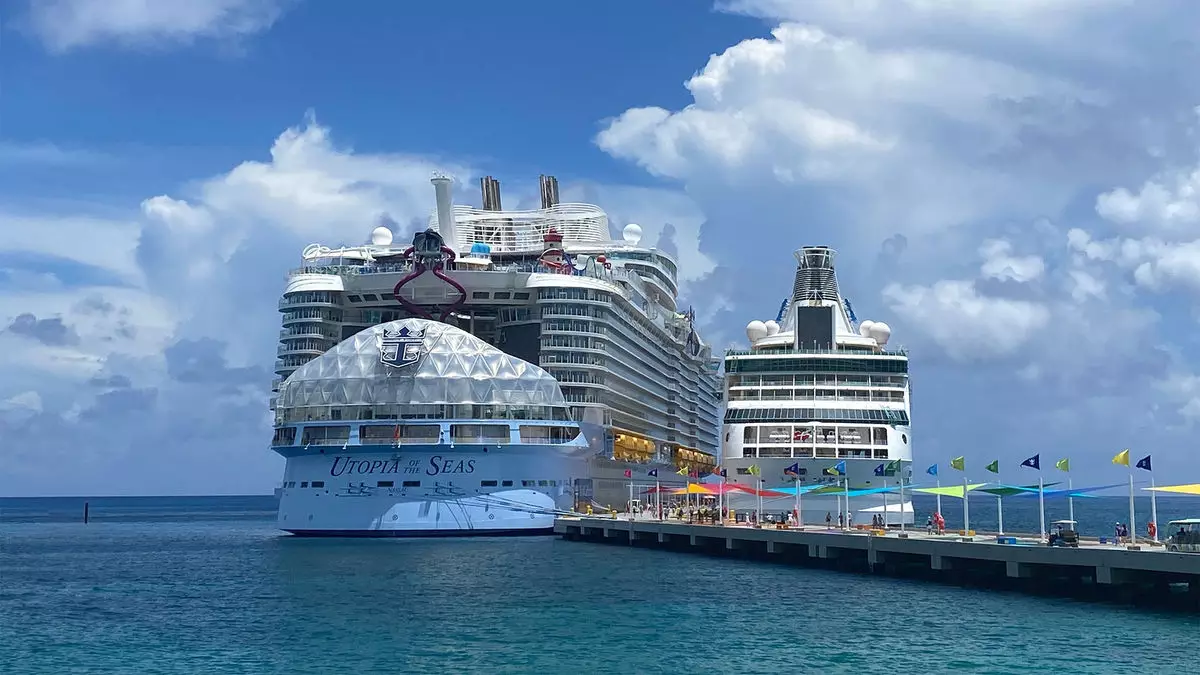The cruise industry is witnessing a significant shift in customer demographics, particularly at Royal Caribbean Group. During the recent third-quarter earnings call, CEO Jason Liberty highlighted a remarkable trend: a considerable portion of the company’s guests are embarking on their inaugural cruise experience or exploring the brand for the first time. Notably, the introduction of the Utopia of the Seas, the company’s sixth Oasis-class ship, marks a pivotal development in catering to this burgeoning market. Launched from Port Canaveral in July, this ship offers shorter three- and four-night itineraries that have particularly resonated with a younger audience, including millennials and Gen Z travelers.
Liberty underscored that the demand for Utopia has been nothing short of phenomenal, exceeding initial projections in both ticket sales and onboard expenditures. In an era where experiential travel is increasingly prioritized, it’s noteworthy that over 70% of guests engage in purchasing onboard activities prior to their cruise, leading to a twofold increase in spending compared to those who decide to purchase solely during their voyage. The rising use of AI-driven pre-cruise sales channels has played a vital role in this transformation, demonstrating the effectiveness of technology in enhancing customer experiences and maximizing revenue potential.
Resilience in the Face of Economic Challenges
Despite looming concerns regarding potential economic slowdowns, Liberty expressed optimism regarding future bookings. As evidenced in the third quarter and the beginning of October, reservations for 2025 have already surpassed those for 2024. This trend highlights the resilience of consumer demand in the face of macroeconomic factors, suggesting a steadfast pursuit of leisure experiences. Royal Caribbean is strategically positioned to capitalize on this phenomenon, with ship occupancy rates aligning with historical trends but coupled with higher pricing strategies that optimize revenue and yield growth.
American consumers are exhibiting sustained financial buoyancy, characterized by wage growth and low unemployment rates. Liberty pointed out that household wealth is at an all-time high and that spending on leisure activities is notably outpacing other expenditures. Within the past year, the travel sector has seen an especially robust surge in investments, outpacing other leisure-related domains. This evolving consumer behavior can be attributed to a societal shift emphasizing experiences over material goods, particularly among younger generations who prioritize travel and adventure.
The financial metrics for Royal Caribbean Group further reflect this positive trajectory, with Q3 net income reaching $1.1 billion, an increase from $1 billion the previous year. Revenue for the quarter swelled to $4.9 billion, up from $4.1 billion, leading to an upward revision of their earnings guidance for the year. Increased yield growth expectations signal confidence in maintaining and even enhancing customer engagement as the industry rebounds post-pandemic.
Royal Caribbean Group’s strategic focus on attracting first-time cruisers, coupled with leveraging technological advancements for sales, positions the company favorably in an evolving market. With economic indicators supporting continued leisure spending, the future looks promising for both the cruise line and its diverse customer base.

